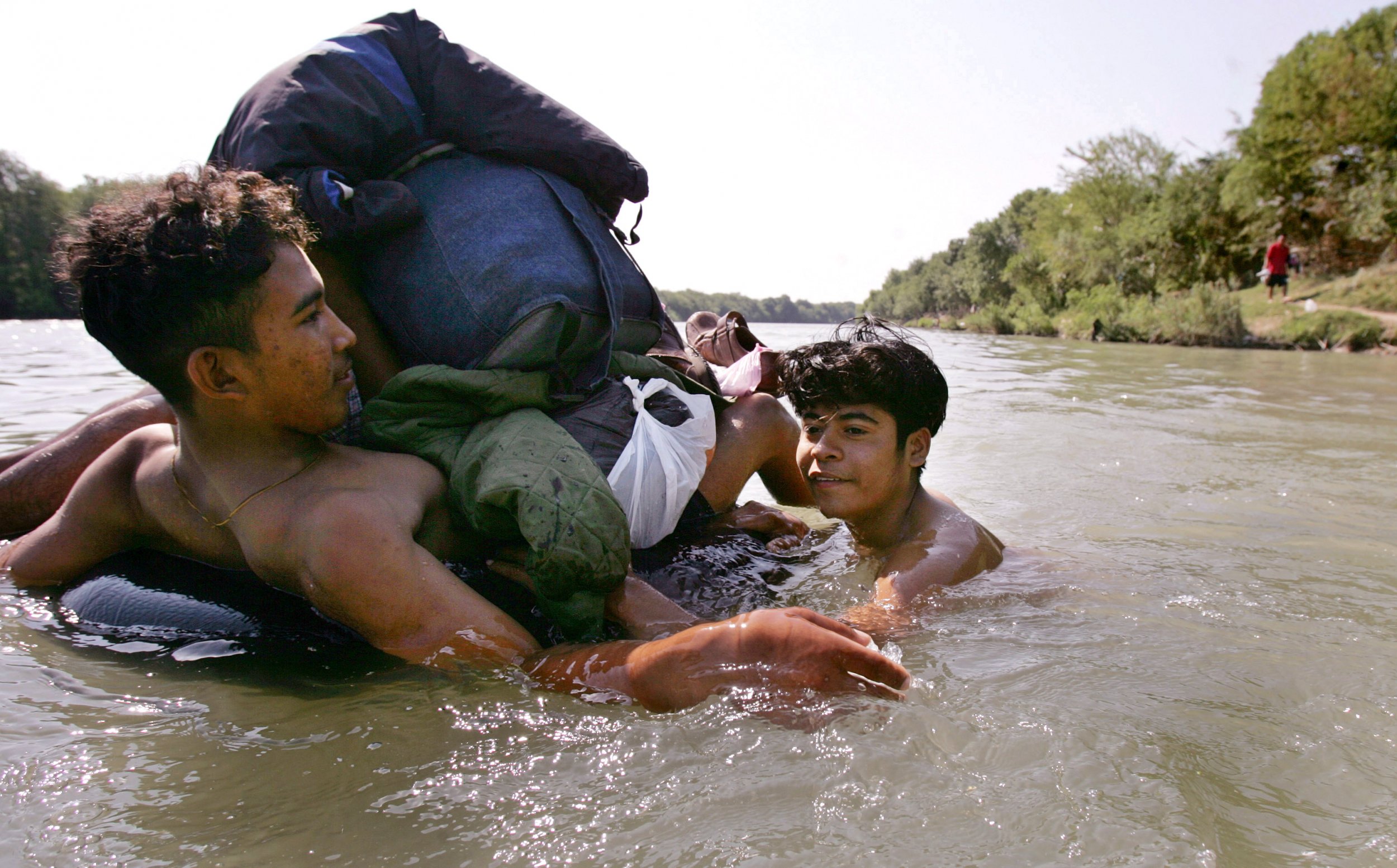
The Trump administration is drafting a new policy to quickly deport more than 150,000 child migrants from Central America who arrived alone in the U.S. illegally, creating a new class of undocumented migrants.
The Department of Justice and Homeland Security is drawing up a policy proposal in a series of memos, according to two sources with knowledge of the internal debate who spoke to the Miami Herald.
As it stands, the plan would allow for teens and children who arrived in the U.S. illegally by themselves to be put on a fast track to deportation when they turn 18. Most of these children have traveled thousands of miles alone from Central American countries, including Honduras, El Salvador, and Guatemala, to escape violence and poverty.
The policy wouldn't allow the teens to plead their case before an immigration judge.
The discussions follow controversy within the government about Deferred Action for Childhood Arrivals program, known as DACA, a program implemented by Barack Obama, which protects children brought to the country illegally by their parents from deportation.
Speaking about the new policy plans, a former U.S. Justice Department official told the Herald, "The concern is that most people at DOJ know this will likely be viewed as illegal and do not want to have to defend this in court if they can avoid it."
Current law "doesn't give the administration a lot of flexibility with how to deal with unaccompanied children," said a U.S. official familiar with the internal debate about the policy. "This administration still has its hands somewhat tied with what it can do with that population," that person said.
Read more: What is going to happen to the DREAMers after Donald Trump's DACA decision?
Immigration has proven to be a key policy area for Trump's supporters and many in his team, including Attorney General Jeff Sessions. Earlier this month President Donald Trump sparked controversy with his decision to end DACA.
The DACA program currently gives two-year work permits to nearly 800,000 young people who were brought to the U.S. illegally by their parents, offering them a reprieve from deportation. Trump has encouraged Congress to act and pass a law that would make the program permanent, as part of a wider agenda to push through other immigration reforms.
Trump's DACA decision has drawn criticism from high profile members of the Catholic church, including Cardinal Timothy Dolan, the archbishop of New York, who said ending the program is unfair, as well as the president's right-wing supporters who say he is going back on his promises to crackdown on illegal immigration.
The new policy around unaccompanied children is part of the Attorney General's efforts to avoid creating a another protected group of illegal immigrants like those under DACA, the Herald's sources said.
The arrival of unaccompanied children and families from Central America peaked in 2014. In the year between October 1, 2013 and September 30, 2014 U.S. Customs and Border Protection (CBP) says it encountered 67,339 unaccompanied children.
At the height of the influx in June 2014, 27,000 people, including unaccompanied children and families, crossed the U.S.-Mexico border. Three months later the number dropped below 5,000 following crackdowns by the U.S. and Mexico governments.
More than 150,000 children have been referred by Homeland Security to the Office of Refugee Resettlement since that time. The program cares for unaccompanied children after they are caught at the border by officials and either places them in shelters, with sponsors, or relatives in the U.S.
About 63 percent and 73 percent of the unaccompanied youth who arrive at the border are between 15 and 17 years old, making a large group of those who are in the U.S vulnerable to deportation if the administration moves ahead with the policy.
"For a growing population of migrants deported from Mexico and the United States to Central America, the conditions upon return typically are worse than when they left, setting up a revolving-door cycle of migration, deportation, and remigration," according to the nonprofit Migration Policy Institute. The group advocates better programs to reintegrate those who are deported to their home country.
If the Trump administration decides to move ahead with the policy proposal it will it will likely meet similar opposition to Trump's travel ban on people coming to the U.S. from six Muslim-majority nations. Elements of the ban have been blocked by federal courts and a legal case against the policy will be heard in the U.S. Supreme Court this fall.
The new policy on unaccompanied minors could be blocked by the courts almost immediately, said Leon Fresco, the former head of the Office of Immigration Litigation at the Justice Department during the Obama administration.
The question is, Fresco said, "whether the administration wants to add this to the travel ban, sanctuary cities, Byrne Jag grants, and DACA repeal to the issues they would want the Supreme Court to have to decide this year."
Uncommon Knowledge
Newsweek is committed to challenging conventional wisdom and finding connections in the search for common ground.
Newsweek is committed to challenging conventional wisdom and finding connections in the search for common ground.
About the writer
Graham Lanktree covers U.S. politics for Newsweek. He is based in London and frequently appears as a contributor on BBC ... Read more
To read how Newsweek uses AI as a newsroom tool, Click here.








